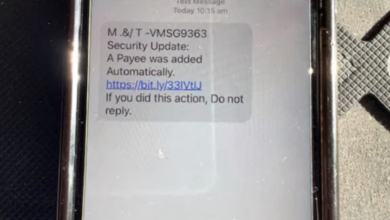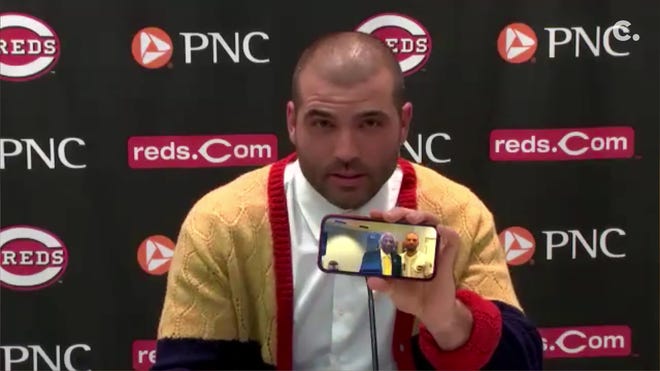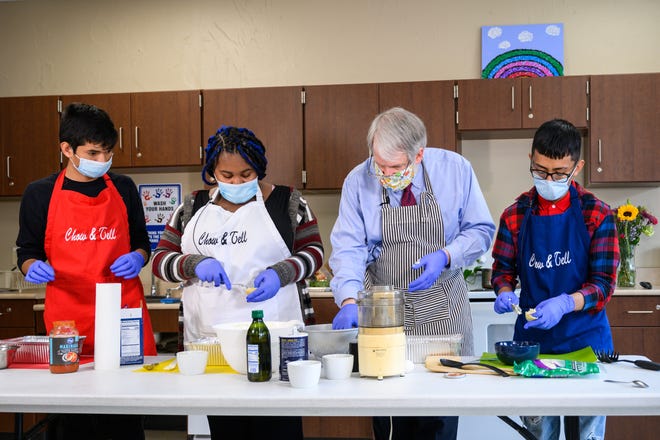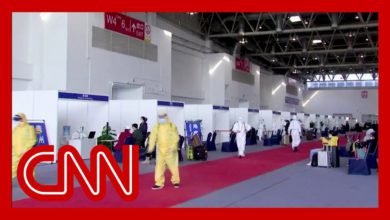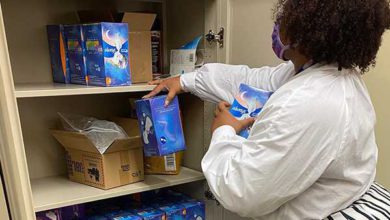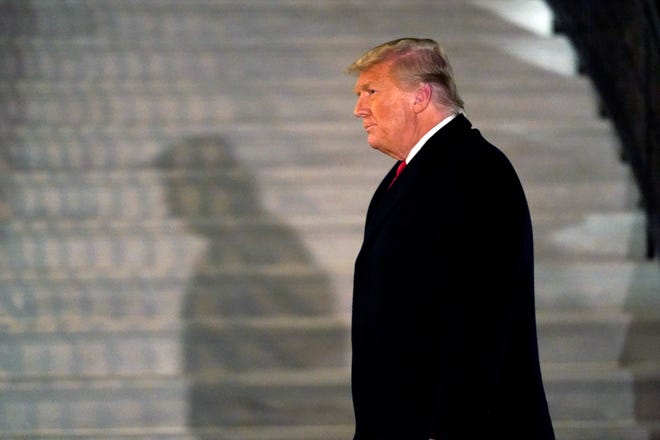
For more than two years, Manhattan District Attorney Cyrus Vance Jr., has been digging deep into the operations of former President Donald Trump's family business for possible fraud involving banks, insurance companies and taxing entities.
The New York prosecutor won a major, public victory in February when Trump's accounting firm was forced to turnover eight years of tax records as part of a protracted legal battle that ended at the Supreme Court.
This week, Vance's investigation appears to have entered a new and potentially ominous phase for the former president with the disclosure that a special grand jury has been convened to consider possible evidence of criminality by the president, his business associates or the company itself.

More:Donald Trump's tax records obtained by New York prosecutors, boosting investigation
More:New York attorney general 'actively investigating' Trump Organization in a 'criminal capacity'
The move, first reported by the Washington Post, does not mean that criminal charges are assured or even imminent, but it marks a shift in the inquiry from a largely information-gathering stage to the presentment of possible evidence of criminal conduct. USA TODAY has not independently confirmed the The Post report.
What is Cy Vance investigating?
The Manhattan district attorney has examining the far-flung Trump Organization's banking, tax and insurance transactions with a focus on whether the company manipulated property values to obtain favorable loans and reduced tax rates.
Prosecutors also have been weighing hush-money payments made to women on Trump's behalf and how that money was documented.

The original investigation began after Trump's former personal fixer Michael Cohen, who arranged the hush money payments, alleged in 2019 testimony to Congress that he and Trump repeatedly misled potential lenders and clients about the value of their properties and businesses in official documents.
Last week, New York Attorney General Letitia James, who had been conducting a civil investigation, announced that her office was joining forces with Vance, a move that not only will provide additional firepower but also could broaden the existing investigation.
More:If Donald Trump faces criminal charges, analysts doubt it will hurt him with his base in 2024
More:What we know about investigations looming over Donald Trump and Trump Organization
"We have informed the Trump Organization that our investigation into the organization is no longer purely civil in nature," a spokesman for James said last week. "We are now actively investigating the Trump Organization in a criminal capacity, along with the Manhattan (district attorney)."
Vance's office has declined to comment.
“These are all signs of an active criminal investigation where prosecutors believe they definitely got a basis to move forward. They’re taking the kind of steps to move forward to finish that investigation, finish gathering evidence, bring people in, put them under oath,” said Randall Eliason, a George Washington University professor and former federal prosecutor in Washington.
“He’s got (Trump’s) tax returns,” he said of Vance. “Trump’s not president anymore, and things are moving forward.”
The significance of a special grand jury
Convening a special grand jury suggests that Vance believes he’s seen enough evidence of a possible crime or crimes that he can present to the grand jury for further review.
“He wouldn’t take this step otherwise. It certainly doesn’t indicate that charges are necessarily forthcoming, but he believes he’s got enough evidence to move forward to use a grand jury. The result of that process is whether to bring charges or not,” said Eliason.
Prosecutors also use grand juries to gather additional evidence by subpoenaing additional documents and compelling witnesses to testify under oath.
A special grand jury also provides continuity for prosecutors and a venue to present complex information over a longer period of time rather than presenting pieces of a case to different panels for consideration.
Adam S. Miller, a former deputy chief in the district attorney's Major Economic Crimes Bureau, said that while regular grand juries can consider up to eight to 10 cases a day, a special panel is traditionally limited in the number of investigations it considers.
"It's used mostly for larger white collar investigations," said Miller, who noted that he had no knowledge of district attorney's actions in the Trump case. "When you go to a grand jury with so much information, it's often necessary to silo their thoughts to one or two cases. It certainly isn't uncommon for a special grand jury to be seated, but it is not tantamount that an indictment will be sought."
Who could be called as witnesses?
Cohen, Trump's longtime personal attorney, already has acknowledged meeting with New York prosecutors multiple times in cooperation with their investigation.

More:Donald Trump faces legal challenges well beyond the Capitol riots: Here's what to watch
Cohen told USA TODAY that he could not comment on any aspect of the case, citing the ongoing investigation and his potential role in it as a key witness for the prosecution. But he commented extensively on Twitter on how grand jury proceedings would amp up the investigation significantly.
“I am not surprised by this at all and have been steadfast in saying the wheels of justice turn slowly but they nevertheless turn,” Cohen said in one tweet shortly after The Post published its story. “No one is above the law!!!”
In another, Cohen said, “Each time #Trump makes the claim of a #PoliticalWitchHunt, I want to remind you of my testimony before the House Oversight Committee two years ago!” In that testimony Cohen called Trump a "racist," a "con man" and a "cheat."
Cohen, who pleaded guilty in 2018 to federal charges that included campaign-finance violations for paying hush money to women who claimed to have had sex with Trump and for lying to Congress, has repeatedly pointed to Allen Weisselberg, the Trump Organization's longtime chief financial officer, as most knowledgeable of the former president's business operations.

Prosecutors already have sought Weisselberg's bank records, according to the New York Times, in what appears to be a bid to gain his cooperation.
Weisselberg's former daughter-in-law, Jennifer Weisselberg, also has confirmed that she turned over at least several boxes of financial documents obtained through her divorce from Weisselberg's son, and that she is a cooperating witness.
One of the biggest wild cards is what evidence Vance has, based on a review of millions of pages of Trump's tax documents, and what more he may be seeking, now along with the state attorney general.
Are Eric, Don Jr. or Ivanka Trump targets?
Grand jury proceedings are always shrouded in secrecy, and the district attorney's office has not commented. But legal analysts, including former top Justice Department lawyers, say Vance already has a significant amount of evidence to make a case against someone – whether that’s Trump, his chief financial officer or some other targets, including, potentially, Trump’s sons and daughter.

Prosecutors don’t convene such grand juries “without serious evidence” already, said Neal Katyal, the former acting U.S. Solicitor General and senior Justice Department official, who has been following the case closely.
But, Katyal added, “We don’t really know what evidence he has yet,” and what he is still seeking. Katyal noted that New York grand juries are limited in terms of hearsay evidence, which requires prosecutors to bring in witnesses to testify in person to make their case.
“We certainly know that the DA’s office has talked to Michael Cohen a number of times as well as Jennifer Weisselberg,” Katyal said.
Katyal and others said it’s too soon though, to conclude that the district attorney's office is ready to seek indictments.
“That's putting the cart before the horse," he said. "First, they're going to get the information, and then they'll possibly act on it. I think it's important, before everyone says, ‘Oh, this means Trump is going to be indicted,’ that there are a bunch of different possible targets here, starting with Allen Weisselberg, the Trump children, and then perhaps Donald Trump himself.
“I think everyone should take a deep breath and time will tell,” Katyal said. “Let the prosecutors do their job, let the grand jury do its job and let’s not hyperventilate about what the result might be.”
Trump responds with familiar refrain: 'Witch hunt'
"This is a continuation of the greatest Witch Hunt in American history," Trump said late Tuesday.
"This is purely political, and an affront to the almost 75 million voters who supported me in the Presidential Election, and it’s being driven by highly partisan Democrat prosecutors. New York City and State are suffering the highest crime rates in their history, and instead of going after murderers, drug dealers, human traffickers, and others, they come after Donald Trump."

Source link

